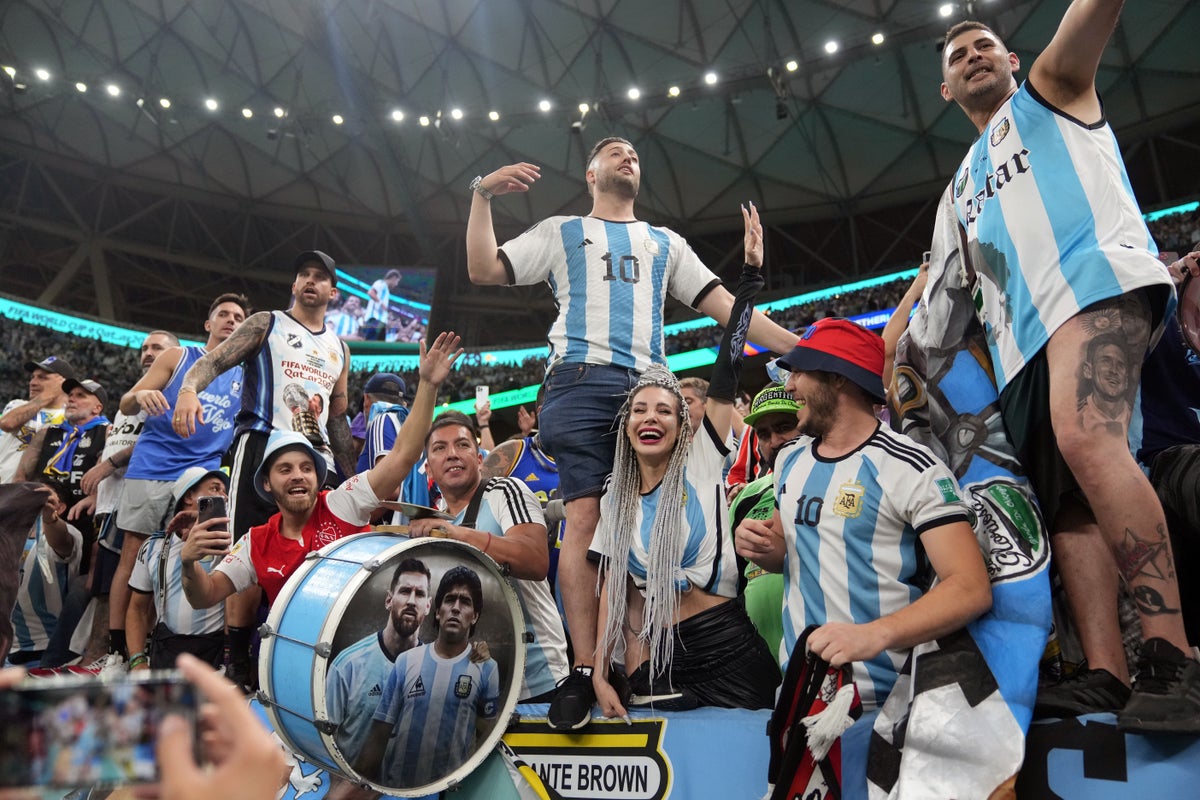
The World Cup in Qatar provided some welcome and genuine shocks on the field of play, but a lot of the issues encountered off it felt depressingly predictable.
Morocco’s success was a huge positive for Africa and the Arab world especially, and for the first time every continent was represented in the last 16. Lionel Messi sparkled, the sun shone and fans from all over the world partied peacefully as Argentina ultimately prevailed as World Cup winners after beating France in a penalty shoot-out following a pulsating final.
Qatar pumped a reported £200billion into the country’s infrastructure following the controversial award of the finals to the tiny but gas-rich Gulf state back in 2010, and anyone visiting a World Cup stadium or travelling on Doha’s Metro system during the tournament could see first hand the scale of Qatari ambition to become a world-leading sports venue.
There were some early ticketing issues but no major organisational flaws. Yet many could not help but feel uneasy here.
‘Now Is All’ was this World Cup’s ever-present slogan. But with this tournament, it was always going to be impossible to only look at the present.
The questions raised in the 12 years before the finals have now shifted to concerns over what comes next – in particular for the country’s migrant workers and its LGBTQ+ community.
The death of a Filipino construction worker during the tournament, while carrying out repairs at what had been Saudi Arabia’s World Cup training base, inevitably led to questions being asked of the game’s global governing body FIFA and the tournament organisers.
Nasser Al Khater, the 2022 World Cup chief executive, told the BBC in response that death “is a natural part of life, whether it’s at work, whether it’s in your sleep”. He expressed his condolences to the worker’s family, but also surprise at this being the opening question in an interview, when he felt the finals had been such a success.
Rothna Begum from Human Rights Watch said the comments from Al Khater showed a “callous disregard” for the migrant worker concerned, while HRW remains unhappy over what it sees as a reluctance by the Qatari authorities to investigate the real extent of migrant worker deaths since the finals were awarded in 2010.
The World Cup also appears to have done nothing to advance LGBTQ+ rights in the country, where same-sex relationships are criminalised.
The vast majority of LGBTQ+ fans from overseas had indicated prior to the tournament that they would stay away, in spite of assurances from FIFA and the local organising committee that everyone travelling to Qatar would be welcome. Some did so for their own safety, while some cited a desire to protect the LGBTQ+ community within Qatar from reprisals.
An HRW report published in October said members of the community have been subject to arrest, detention and assaults, something the Qatari government categorically denies.
FIFA said it had been given assurances from the Qatari organisers that rainbow-coloured clothing and banners would be permitted inside World Cup venues, but reports that some of these items were being confiscated kept on coming as the tournament progressed.
FIFA was also criticised in the first week of the tournament after threatening sporting sanctions against the seven European nations who wanted their captains to wear a rainbow-coloured ‘OneLove’ armband as an anti-discrimination symbol.
The countries involved all ultimately backed down, and were in turn criticised for not standing up to FIFA.
For many observers, FIFA’s behaviour in that saga confirmed fears that it was prepared to put the interests and sensitivities of Qatar and its rulers first, and that Qatar would not be the last state with a highly dubious human rights record to be awarded the right to host a major tournament.
In a bizarre, hour-long speech and a subsequent press conference on the eve of the tournament, FIFA president Gianni Infantino touched on the possibility of awarding a tournament to Iran if it might help to improve the plight of women in the country, and about how he had wanted North Korea to be part of a joint Women’s World Cup bid with South Korea.
Sources close to Infantino say he views football as a way into difficult conversations with leaders of some of the world’s most notorious regimes, and believes the award of tournaments can be a catalyst for change – as it has been to a degree in Qatar.
Anti-discrimination charity Kick It Out believes adherence to international standards on human rights should be a prerequisite for a bid to even be submitted, let alone be successful.
It asked FIFA for a guarantee prior to these finals that its new human rights policy would bar a country like Qatar from bidding in the future – an assurance it says FIFA was unable to give.
Any bid involving Saudi Arabia for the centenary finals in 2030 would be marked down for human rights failings, but would not be excluded. The decision of whether or not to overlook those failings would ultimately sit with FIFA’s 211 member associations.
Such an award, in the wake of the controversy over Qatar, might come to some as a shock even greater than the Green Falcons’ incredible victory over Argentina early on at these finals.
But Infantino’s stated mission to unite the world through football – and to secure FIFA’s financial future well into the middle of the century – means nothing can be discounted.







